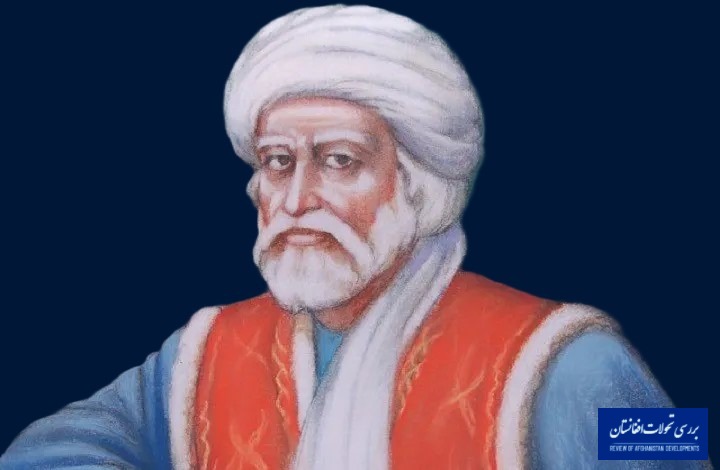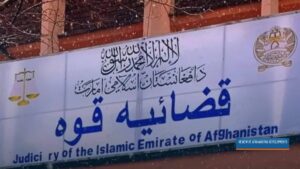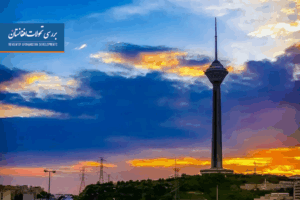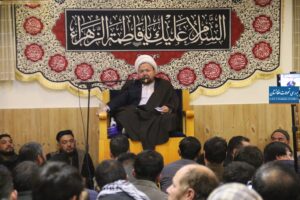Review of Afghanistan developments
Khushal Khan Khattak is regarded as one of the foremost poets in the Pashto language and holds a significant position in the history of Afghanistan. He is recognized not only as an erudite poet but also as a political and military figure of the Khattak tribe. Khushal Khan’s Diwan, which comprises both Pashto and Persian poetry, serves as an undeniable testament to his culture, ideas, and convictions, and occupies a vital role in the cultural identity and literature of the Pashto language.
Historical background and Khushal Khan Khattak’s personal life
Khushal Khan Khattak was born in the year 1643 in the village of Akora Khattak, located near Nowshera in what is now known as the Khyber Pakhtunkhwa province of Pakistan. He was a descendant of Shahbaz Khan Khattak, who belonged to the Kirlani tribe. His father had been granted significant privileges by the Gurkani kings, and following his father’s passing, Khushal Khan was designated as the chief of the Khattak tribe at the age of 28.
Despite the fact that all privileges of Khushal Khan Khattak were annulled during Aurangzeb’s rule, leading to his temporary imprisonment in the forts of Gwalior and Rentenhabor, he was ultimately freed from incarceration due to the endeavors of the Khattak clan and several of his allies. He continued to resist the Timurids until his death in 1721 at the age of 78.
Literary works and poetic style
Khushal Khan Khattak created a significant body of poetry in both Pashto and Persian, demonstrating expertise in various forms such as ghazal, qasidah, rubai, qatah, masnavi, Tarkibband, and tarji’band. He is recognized as the progenitor of Pashto literature and played a crucial role in formulating numerous rules regarding prosody, rhyme, and poetic techniques within the language.
His most renowned works encompass the poetry collection, the Mathnavi “Fazlnameh”, along with the poetry collections “Baznameh”, “Swatnameh”, “Tebnameh”, “Dastarnameh”, and “Firaqnameh”. His poetry comprises over four thousand verses, with a considerable portion being epic in nature, fostering themes of bravery, masculinity, morality, and a sense of nationalism.
Religious beliefs and praise of the Ahlul Bayt (AS)
Khushal Khan Khattak adhered to the Sunni faith and held a profound admiration for the leaders of the Tariqat. Nevertheless, a significant facet of Khushal Khan Khattak’s character was his strong conviction in the descendants of the Prophet of Islam (PBUH) and the Twelve Imams from the lineage of that Holy Prophet. He frequently referenced the names of the Prophet (PBUH) and the Twelve Imams in his Pashto poetry. An illustration of his poetry that reflects his beliefs and the perspectives of his contemporaries regarding the Twelve Imams is as follows:
English translation:
The world is home to twelve Imams,
Whose names are referenced in the Hadith:
The first is Ali, the second is Hassan,
Followed by Hussain, who is pure of body.
The fourth is Zainul Abedin,
Then comes Baqir, known for bringing out the deep concept from the religion.
Next is Ja’far, followed by Imam Musa al-Kazim,
Then Imam Ali al-Rida, followed by Muhammad al-Taqi.
The next is Imam Ali al-Naqi, then Imam Hassan al-Askari,
And lastly, Imam al-Mahdi, the rightful leader of the world, the son of Bibi Zahra.
Furthermore, in an additional ode, his fascination with the Prophet (PBUH) and the Ahlul Bayt (AS) is distinctly apparent:
English meaning of poetry:
All the prophets were recognized until the advent of the Prophet of Islam, Hazrat Muhammad (PBUH);
But following his time, there is no necessity for another prophet, similar to how the stars fade away when the sun rises.
Whether it is the Torah, the Gospel, or the Psalms,
These texts are embellished and associated with his (the Prophet of Islam) name and legacy.
Through his miracle, he divided the moon into two;
And under the influence of his miracle, solid iron turns pliable like wax.
From his community, twelve Imams have been selected;
Who stand as the lords and leaders of all realms in their grandeur and stature.
Khushal Khattak aspires to be united with them on the Day of Judgment,
Because of his affection for the five Aal-e-Abba and the fourteen Infallibles.
At the end, Khushal Khan Khattak refers to the name of Ali (a.s.) and his esteemed qualities:
Embrace honesty and then act like a man.
If a man truly exists in this world, he is like the king of Khyber.
These poems express the poet’s affection and commitment to the family of the Prophet (PBUH), highlighting his focus on virtue, masculinity, and Islamic ethics.
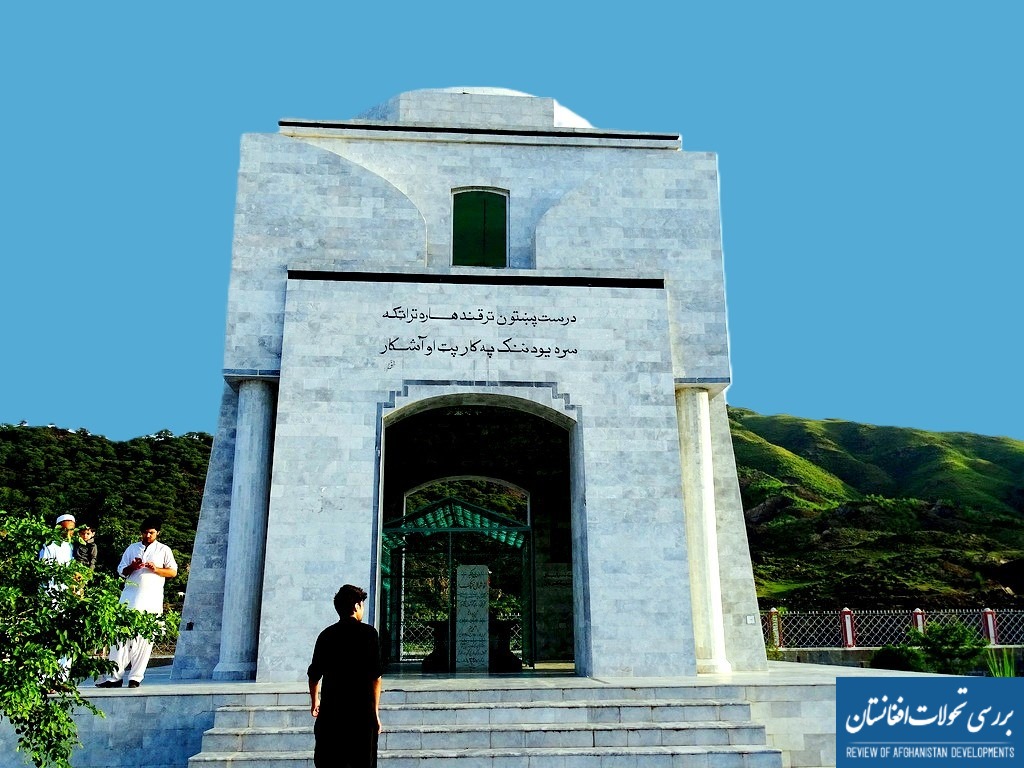
The necessity of re-examining the thought of Khushal Khan Khattak
The life and contributions of Khushal Khan Khattak, alongside their literary and historical importance, serve as a significant example for modern Afghan society. He exemplifies remarkable qualities such as bravery, intelligence, ethics, patriotism, and dedication to faith. His bravery and sense of nationalism, evident in his grand poetry and military command, illustrate how individuals can respond with wisdom, unity, and drive when confronted with societal and cultural challenges.
Khushal Khan Khattak’s literary contributions are not merely epic in nature; they are also rich in moral teachings, offering guidance on justice, discouraging despair, and highlighting the importance of rational thought. Additionally, his profound appreciation and his love for his culture and national identity serves as a testament to the influence exerted by the life and works of this historical figure.
Another significant facet of Khushal Khan Khattak’s life is his dedication to religion and his fascination with the Ahl al-Bayt (AS), along with moral and spiritual teachings. His poetry illustrates his preoccupation with religion and ethics, as well as the relationship between religious doctrines and the cultural identity of the Pashtun people. This profound intertwining of faith, morality, and culture, along with tolerance and religious affinity, serves as an inspiring example for the current generation, demonstrating how spiritual values can be harmonized with national and cultural identity.
The life of Khushal Khan Khattak demonstrates that one can simultaneously be a trailblazer in both military and cultural fields while achieving a harmonious balance between authority and insight, bravery and ethics, as well as between action and contemplation. Emulating his example can serve as a valuable guide for fostering cultural identity, enhancing national spirit, and nurturing morality and wisdom in modern society, ultimately steering today’s generations towards a dedication to elevated human and cultural values.
Related articles
Aisha Durrani: A look at the poetry of An Afghan Woman
Saleh Mohammad Khaliq; life and works
Reflecting on the life, character, and contributions of Khushal Khan Khattak reveals how he stands as an iconic cultural figure, embodying courage, ethics, and wisdom through his reverence for the Prophet and his family. Engaging with and adhering to his philosophies can serve as a valuable resource for enhancing cultural identity, fostering moral development, and advancing the social and literary skills of Afghanistan’s current generation.
Follow us in Social Media
Telegram X Facebook


